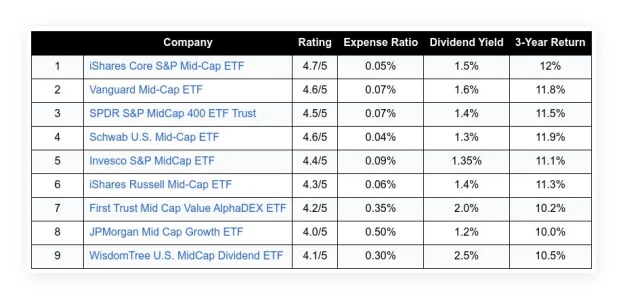In retirement, you’re not just slowing down but shifting gears. For many, this will be their first time in decades being able to control their own schedule. Despite the popularity of travel, relaxation, and hobbies during retirement, lifelong learning is a critical path often overlooked.
With age, the desire to keep learning doesn’t fade away. Retirement is an ideal time to rediscover your curiosity, learn new skills, and explore passions that got neglected during your career. In addition to keeping busy, lifelong learning helps you stay mentally sharp, socially connected, and deeply fulfilled.
Here, we explore why lifelong learning matters in retirement, what it looks like in practice, and how to find intellectual stimulation regardless of your interests.
Table of Contents
ToggleWhy Lifelong Learning Matters in Retirement
No matter what passion you have, continuous learning opens the door to a fulfilling, vibrant life in your golden years. Specifically, the following are some key benefits of lifelong learning in retirement:
Improved cognitive health.
As with any muscle, the more you exercise and challenge your brain, the stronger and more resilient it becomes. In other words, continuous learning provides an essential mental workout. As you seek new information and grapple with novel concepts, you are strengthening your cognitive abilities, not just filling your head with facts.
Research consistently shows that ongoing learning improves memory, enhances focus, and reduces age-related cognitive decline, including dementia and Alzheimer’s disease. Like working out at the gym, it builds your brain’s endurance and protects it from aging.
Building social connections.
In retirement, social circles can shrink as work interactions diminish. Learning, however, offers an excellent antidote to loneliness. You can meet like-minded individuals through pottery classes, history workshops, book clubs, or online learning communities. By cultivating meaningful relationships and building new friendships through shared interests, learning environments can profoundly enrich your social landscape.
Creating a sense of personal fulfillment.
Do you remember those hobbies you always wanted to pursue but never had the time to do? Whether you are learning to play a musical instrument, how to calligraphy, or mastering the intricacies of gardening, lifelong learning allows you to explore those passions. In addition to providing a sense of purpose and joy, following new interests can lead to fulfillment that transcends mere relaxation.
Enhanced mental health.
Learning is stimulating inherently. It promotes curiosity, encourages exploration, and provides a sense of accomplishment. This type of mental engagement has powerful benefits for mental well-being. If you challenge your mind and reach learning milestones, you can reduce stress, combat feelings of stagnation, and cultivate a more positive and optimistic outlook on life. As a result of learning, we can experience satisfaction and joy.
A greater ability to adapt.
Even after retirement, the world continues to evolve. With rapid technological advances, shifting social dynamics, and personal health challenges, staying current on new ideas and information can help retirees remain flexible and confident during these transitions. Continuous learning develops mental agility, which enables one to embrace change rather than feel overwhelmed by it.
Increased confidence.
As the routines and identities of your working years fade, it’s crucial to cultivate new sources of self-esteem. Any achievement, whether completing a challenging course online, mastering a new recipe, or grasping a complex historical concept, builds self-confidence and a profound sense of accomplishment. As a result of these achievements, you maintain a strong and positive self-image during this critical life transition.
Acquiring practical skills.
As well as abstract knowledge, lifelong learning can equip you with highly practical skills that enhance your daily life and promote independence. With these newly acquired skills, you can navigate the modern world more confidently and easily, whether communicating with others online or managing your retirement funds.
Continued purpose and engagement.
In some cases, lifelong learning can inspire new career paths for retirees. As a result of a newfound interest, you may be able to find part-time work, consulting opportunities, or volunteer roles that provide a sense of purpose, social engagement, and intellectual stimulation. It is possible to turn learning into a rewarding second act.
Personal growth.
Lifelong learning can lead to profound self-discovery in retirement. When you are free from career constraints, your life will be enriched in unexpected ways, and you can explore yourself in entirely new ways. Retirement becomes deeply enriching as you actively seek out new perspectives and reveal hidden potentials during retirement.
Legacy building.
A retiree’s knowledge, wisdom, and life experience are vast. Through lifelong learning, this invaluable heritage can be shared with younger generations. You can leave a lasting legacy beyond material possessions by mentoring, teaching, or simply sharing stories and insights gained from continued learning.
What Lifelong Learning Looks Like in Retirement
Learning does not have to mean going back to school. Whether it’s formal courses or casual exploration, retirees today have many options. The following are just a few ways you can keep learning during retirement.
University and community college programs.
Most colleges offer senior-focused programs or allow retirees to audit classes for free or at a reduced cost. Whether you’re interested in literature, history, art, philosophy, astronomy, or psychology, you don’t need to worry about grades.
If you are choosing a university or community college program, you should consider the following;
- Osher Lifelong Learning Institutes (OLLI). This network allows older adults to participate in over 100 college programs.
- Audit programs. It may be possible for seniors to take courses for noncredit at local universities.
Online learning platforms.
Learning virtually anywhere via online education is possible, even if commuting is a concern.
Here are some options you may want to consider;
- Coursera and edX. You can take university-level courses from literature to data science- many of them are free.
- The Great Courses. You can often stream or buy DVDs of history, philosophy, and science lectures.
- MasterClass. You can take classes taught by celebrities in creative writing, cooking, music, and more.
With online programs, you can learn at your own pace, on your own schedule, from the comfort of your own home.
Public libraries.
Your local library is a treasure trove of free resources and opportunities. In addition to books, many libraries offer;
- Lectures by guests and talks by authors
- Help sessions for technology
- Book clubs and discussion groups
- Access to learning databases like LinkedIn Learning or Mango Languages
Workshops and local clubs.
Want something hands-on or social? If so, you might want to try;
- Art or pottery classes at a community center
- Gardening clubs
- Investment or retirement planning groups
- Toastmasters for public speaking
- Music lessons or choir groups
In addition to teaching new skills, these in-person activities connect you with others who are like-minded.
Personal projects and self-directed study.
Some types of learning do not require structure. In retirement, you can explore your interests:
- You can start a blog or YouTube channel about a subject you are passionate about.
- Learn about your family history and build your own genealogy tree.
- Get to know the classics or read a list of “100 books to read before you die.”
- Become a better musician, learn a new language, or code a website.
When curiosity is your guide, the possibilities are endless.
Overcoming Common Barriers to Lifelong Learning
Even with interest, some retirees are hesitant to pursue learning. If you’re in this camp, you can overcome common roadblocks by following these steps:
“I’m too old to start now.”
The key to learning is attitude, not age. As long as the brain is plastic, it can grow, adapt, and change throughout life. In retirement, many people enjoy learning more than when they were in school.
“I don’t know where to begin.”
Start small. You can take a class, read a book, or watch a documentary in one area of interest. That should spark your curiosity. There is no need for a five-year plan — just a willingness to explore.
“I’m not tech-savvy.”
It’s never too late to learn something new. Most libraries and senior centers offer tech support. It is possible to learn a great deal through the internet once you become comfortable navigating it.
“I’m on a tight budget.”
There are many free or low-cost lifelong learning resources available. The library, public lectures, podcasts, YouTube tutorials, and open online courses are excellent places to start for free.
Final Thoughts
In retirement, lifelong learning isn’t about chasing degrees or padding resumes. The key is to keep your mind open, remain curious, and continue evolving as a person.
Whatever you do, learning keeps you engaged with the world– and with yourself. It doesn’t matter if you join a book club, audit a college class, or master video editing. When routines change and old roles fade, education offers a new avenue for growth, contribution, and meaning.
So, are you ready to get started? If so, decide what you would like to learn this month. You can join a local club or library, take an online course, or join your local library. Remember, the first step is simple: stay curious.
FAQs
What is lifelong learning in retirement, and why is it important?
In retirement, lifelong learning involves engaging in voluntary learning activities for personal enjoyment, social interaction, and continued growth. Learning can take many forms, whether it’s through formal training or workshops, a hobby, or self-study.
Learning new things in retirement keeps your mind sharp, confidence alive, and sense of purpose. In addition to intellectually stimulating your retirement years, staying curious and open to new ideas may also increase your emotional, social, and physical well-being.
What kind of learning activities are available for retirees?
The possibilities are endless! Examples include;
- Formal education. Attending university courses or colleges, enrolling in senior-specific learning programs like Osher Lifelong Learning Institutes, or pursuing an online degree.
- Community-based learning. Classes or workshops at senior centers, community centers, libraries, or adult education centers.
- Hobbies and creative pursuits. Music, painting, writing, gardening, photography, crafting, or woodworking are just a few of the hobbies you can take up.
- Technology skills. Learning computer skills, using the internet, social media, and smartphones or tablets.
- Languages and cultures. Developing a new language, exploring different cultures through books, documentaries, or online resources.
- Personal development. Attend workshops on mindfulness, genealogy, financial literacy, and public speaking.
- Volunteering. The ability to share existing knowledge and skills while learning new ones in a meaningful setting.
- Book clubs and discussion groups. Keeping up with current events and literature.
- Online courses and platforms. Learning through Coursera, edX, Udemy, Senior Planet, or the AARP Skills Builder.
- Travel and cultural experiences. Immersive learning through exploration.
How can I find lifelong learning opportunities in my area?
- Local senior centers. Senior centers often offer classes, workshops, and activities for seniors.
- Community colleges and universities. Many programs offer reduced or free tuition to seniors or allow them to audit courses.
- Libraries. Regularly host lectures, workshops, and book clubs.
- Community centers. Provides classes on various topics and hobbies.
- Online search. Using search engines, you can find local courses and online learning platforms.
- AARP and other senior organizations. They are often a source of lifelong learning resources and information.
- Osher Lifelong Learning Institutes (OLLIs). For adults over 50, these non-credit courses are taught at universities nationwide.
Do I need prior qualifications or experience to participate?
Generally, no.
Most retirement lifelong learning opportunities cater to individuals with various backgrounds and levels of experience. The emphasis is usually on personal enrichment and enjoyment over academic credit.
Is lifelong learning expensive in retirement?
There is a wide range of costs associated with lifelong learning. Online resources, library programs, senior center activities, and library programs are free or low-cost. There may be a fee for formal courses or specialized workshops, but seniors are often eligible for discounts.
Image Credit: SHVETS production; Pexels
















